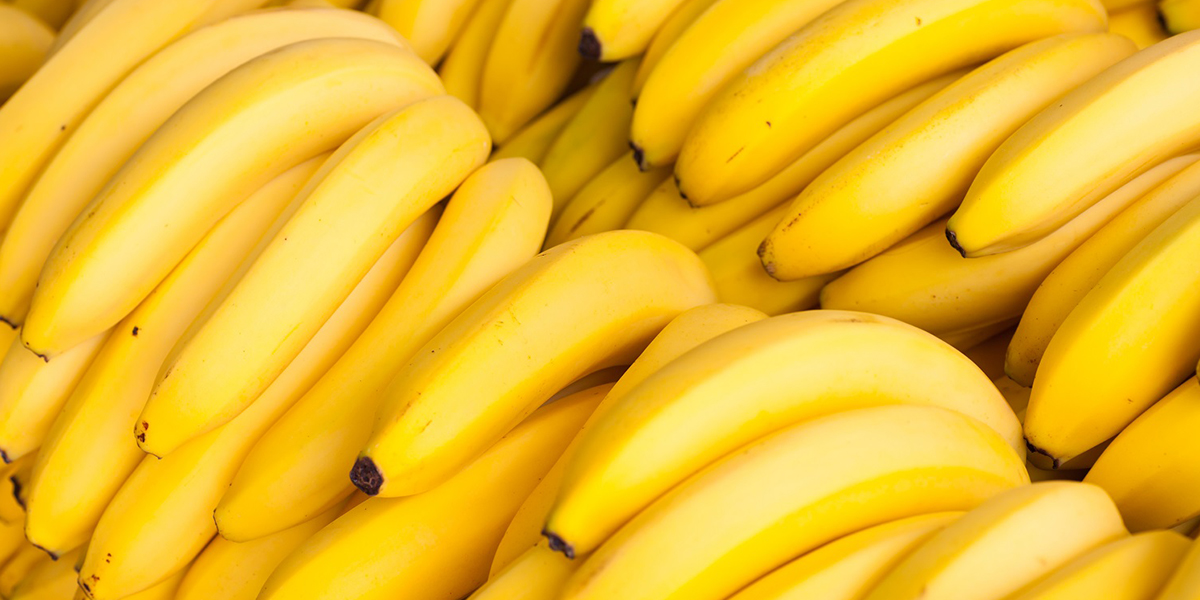

How Should I Store Vegetables and Fruits at Home?
It is very important to store vegetables and fruits correctly at home, both in terms of preserving their freshness and preserving their nutritional value.
Storing Vegetables
A. Onion: It is best to store onions in a cool, dry place. For this, you can put the onions in a bag and store them in a ventilated cupboard. It's also possible to store onions in the refrigerator, but onions have a higher risk of molding in a humid environment.
B. Garlic: It is best to store garlic in a cool, dry place. For this, you can put the garlic in a bag and store it in a ventilated cupboard. It is also possible to store garlic in the refrigerator, but garlic has a higher risk of rot in a humid environment.
C. Potatoes: It is best to store potatoes in a cool, dark place. For this, you can put the potatoes in a bag and store them in a dark cupboard. It is also possible to store potatoes in the refrigerator, but this can change the starch structure of the potatoes.
D. Carrots: It is best to store carrots in a cool, dry place. For this, you can put the carrots in a bag and store them in a ventilated cabinet. It is also possible to store carrots in the refrigerator, although in this case the risk of carrots becoming moldy in a humid environment is higher.
E. Tomatoes: It is best to store tomatoes at room temperature. For this, you can store the tomatoes in a basket or on a plate. Also, you should not store tomatoes in the refrigerator as this can ruin the taste and texture of the tomatoes.
F. Pepper: It is best to store peppers at room temperature. For this, you can store the peppers in a basket or on a plate. It is also possible to store the peppers in the refrigerator, but this can change the flavor of the peppers.
Storage of Fruits
A. Apple: It is best to store apples in a cool, dry place. For this, you can store the apples in a basket or on a plate. It is also possible to store apples in the refrigerator, but this can change the texture of the apples.
B. Banana: It is best to store bananas at room temperature. For this, you can store the bananas in a basket or on a plate. Also, you should not store bananas in the refrigerator as this can cause the skins of the bananas to turn black.
C. Strawberries: It is best to store strawberries in the refrigerator. For this, store the strawberries in a bowl and cover them with a few paper towels. Also, you should store strawberries before washing them because the risk of rot increases if they are stored in a humid environment.
D. Watermelon: It is best to store watermelons at room temperature. However, if the watermelon needs to remain after cutting, you can store it in the refrigerator. When storing the watermelon in the refrigerator, wrap the cut surface of the watermelon with cling film.
E. Grapes: It is best to store grapes in the refrigerator. For this, store the grapes in a container and cover them with a few paper towels. Also, you should store the grapes before washing them because the risk of rot increases if they are stored in a humid environment.
F. Orange: It is best to store oranges at room temperature. For this, you can store the oranges in a basket or on a plate. It is also possible to store oranges in the refrigerator, but this can cause the peels of the oranges to dry out.
Other Tips
A. You should store vegetables and fruits before washing them because the risk of rot increases if they are stored in a humid environment.
B. You should store vegetables and fruits separately. The gases emitted by some vegetables and fruits can affect others.
Preparation of Vegetables and Fruits
A. If you are not going to use vegetables and fruits immediately, you should chop them before drying or freezing them. When you chop vegetables, it is easier to store them in the refrigerator and allows you to prepare meals quickly.
B. You should store vegetables and fruits in airtight containers. Thus, vegetables and fruits do not come into contact with oxygen and stay fresh longer.
A. You should not store vegetables and fruits in large quantities. Thus, they are encouraged to be consumed faster and the risk of spoilage is reduced.
D. Before storing vegetables and fruits in the refrigerator, you should dry all moisture and water droplets on them. Thus, they stay fresh longer.
How Do You Know If Vegetables and Fruits Have Gone?
A. Symptoms such as bad smell, stains and softness in vegetables and fruits indicate deterioration.
B. Rot, mildew, greenish appearance and small black spots on vegetables and fruits also indicate deterioration.
C. When signs of spoilage appear, you should discard the vegetables or fruit immediately. Rotting vegetables and fruits can contain bacteria that are harmful to your health.
As a result, the correct storage and consumption of vegetables and fruits is very important for maintaining their freshness and nutritional value. By following the tips mentioned above, you can keep your vegetables and fruits fresh for longer.
Storage Time of Vegetables and Fruits
A. The storage period of vegetables and fruits may vary depending on the type and storage conditions. In general, vegetables and fruits can be stored for 1-2 days at room temperature, 3-7 days in the refrigerator and 8-12 months in the freezer.
B. Some vegetables and fruits stay fresh for a shorter period of time than others. For example, leafy vegetables like spinach and lettuce stay fresh for only a few hours at room temperature, while vegetables like zucchini and cucumbers can stay fresh for several days in the refrigerator.
Freezing Vegetables and Fruits
A. Before freezing vegetables, wash, peel and chop them. Put the vegetables in steaming or boiling water and rest for a few minutes.
B. Before freezing the fruit, wash and chop it. Some fruits, such as strawberries and cherries, soften after freezing, so you can sweeten them slightly with sugar before freezing.
C. Store vegetables and fruits in airtight containers or freezer bags and put them in the freezer. Storage time in the freezer may vary depending on the type of vegetable or fruit.
Drying Vegetables and Fruits
A. To dry vegetables and fruits, cut them into thin slices and arrange them neatly. You can dry vegetables and fruits in the dryer or in the sun.
B. Store dried vegetables and fruits in airtight containers and store in a cool place. Dried vegetables and fruits can be used to add flavor and nutritional value to meals or snacks.
As a result, the correct storage and consumption of vegetables and fruits is very important for a healthy diet. By following the tips mentioned above, you can keep your vegetables and fruits fresh for longer and create a healthy eating plan.
Washing Vegetables and Fruits
A. Before washing vegetables and fruits, wash your hands thoroughly.
B. Wash vegetables and fruits under warm water. You can scrub hard-shelled vegetables and fruits with a brush.
C. Washing vegetables and fruits under water is sufficient to remove soil or other contaminants. You should not use soaps or detergents, as they can remove natural oils from the surface of vegetables and fruits.
D. After washing vegetables and fruits, dry them with a towel or paper towel or let them air dry. This will reduce the risk of rot in a humid environment.
Cooking Vegetables and Fruits
A. When cooking vegetables and fruits, you should choose the right cooking method for best results. Some vegetables and fruits, such as broccoli and cabbage, should be cooked by steaming or boiling.
B. Overcooking vegetables and fruits can cause loss of nutrition and nutritional value. Also, overcooking vegetables and fruits can cause their flavor to deteriorate and their texture to be lost.
Season of Vegetables and Fruits
A. Consuming vegetables and fruits according to their season allows you to obtain more fresh and delicious products. In addition, vegetables and fruits consumed according to the season contain more nutrients and antioxidants.
B. Seasons of vegetables and fruits may vary by country and region. Buying vegetables and fruits from local markets or farms can result in fresher and tastier produce.
As a result, the storage, consumption and cooking of vegetables and fruits are very important for a healthy diet.
Get an Offer Contact Us
References
As Alfa Proje, we serve each of our projects with years of experience and passion.

ASSEMBLY, MAINTENANCE AND REPAIR
ALFA PROJE DIŞ TİCARET INC. designs the processes specially according to your special demands and ensures the assembly of your projects by authorized and expert technical teams. Our company is ready to provide 24/7 maintenance and repair support with its expert technical service in Turkey and abroad for your projects.











